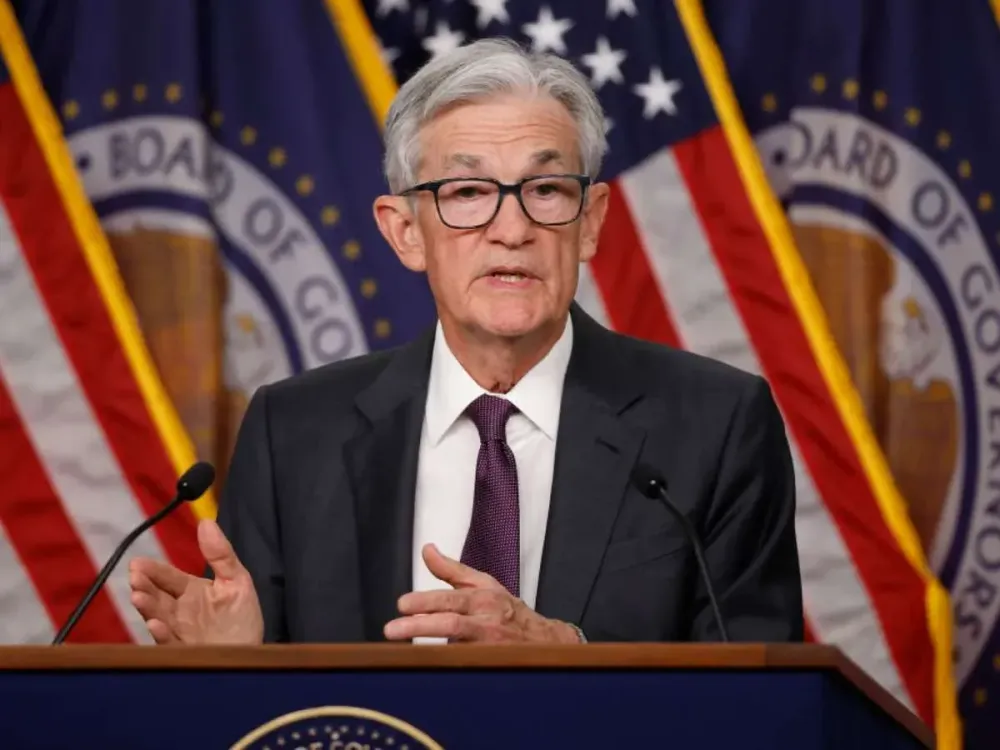Advertisement|Remove ads.
Powell Says Fed Well-Positioned To Wait For Clarity Before Policy Adjustments: States Level Of Tariff Rises ‘Significantly Larger Than Anticipated’

Federal Reserve Chair Jerome Powell said in his speech at The Economic Club of Chicago that the central bank is well-positioned to wait for greater clarity before considering any adjustments to its monetary policy stance.
“We continue to analyze the incoming data, the evolving outlook, and the balance of risks. We understand that elevated levels of unemployment or inflation can be damaging and painful for communities, families, and businesses,” Powell said in his opening remarks.
The Fed Chair also asserted that tariffs are highly likely to generate at least a temporary rise in inflation. “The inflationary effects could also be more persistent. Avoiding that outcome will depend on the size of the effects, on how long it takes for them to pass through fully to prices, and, ultimately, on keeping longer-term inflation expectations well anchored,” he said.
Powell acknowledged that the level of the tariff increases announced so far “is significantly larger than anticipated.” “The same is likely to be true of the economic effects, which will include higher inflation and slower growth,” he said.
Powell noted that the Fed’s obligation is to keep longer-term inflation expectations well anchored and ensure that a one-time price level increase does not become an ongoing inflation problem.
“We may find ourselves in the challenging scenario in which our dual-mandate goals are in tension. If that were to occur, we would consider how far the economy is from each goal, and the potentially different time horizons over which those respective gaps would be anticipated to close,” he said.
According to Bloomberg, in his subsequent discussion with former Indian central bank chief Raghuram Rajan, Powell said the impact of tariffs on inflation depends on their size, the time it takes to feed through the economy, and how well inflation expectations are anchored.
Meanwhile, the markets declined sharply by Wednesday afternoon due to the tech sell-off and the ongoing tariff war.
The SPDR S&P 500 ETF Trust (SPY), which tracks the S&P 500, fell 2.4%, and the Invesco QQQ Trust, Series 1 (QQQ), which follows the Nasdaq Composite, declined 3.4%.
Also See: US Retail Sales Beat Expectations In March With 1.4% Gain: Economist Calls Them Blowout Numbers
For updates and corrections, email newsroom[at]stocktwits[dot]com.














/filters:format(webp)https://news.stocktwits-cdn.com/large_Getty_Images_2227669423_jpg_f410427536.webp)
/filters:format(webp)https://news.stocktwits-cdn.com/IMG_8805_JPG_6768aaedc3.webp)
/filters:format(webp)https://news.stocktwits-cdn.com/large_tesla_fsd_jpg_f113fd1ea5.webp)
/filters:format(webp)https://st-everywhere-cms-prod.s3.us-east-1.amazonaws.com/unnamed_jpg_9dff551b50.webp)
/filters:format(webp)https://news.stocktwits-cdn.com/large_Getty_Images_2212147411_jpg_a8bf4473f2.webp)
/filters:format(webp)https://news.stocktwits-cdn.com/large_Getty_Images_2230137825_jpg_d14459f501.webp)
/filters:format(webp)https://news.stocktwits-cdn.com/Aashika_Suresh_Profile_Picture_jpg_2acd6f446c.webp)
/filters:format(webp)https://news.stocktwits-cdn.com/large_brian_armstrong_OG_jpg_3ac8291bf2.webp)
/filters:format(webp)https://news.stocktwits-cdn.com/jaiveer_jpg_280ad67f36.webp)
/filters:format(webp)https://news.stocktwits-cdn.com/Getty_Images_2227994915_jpg_357c625963.webp)